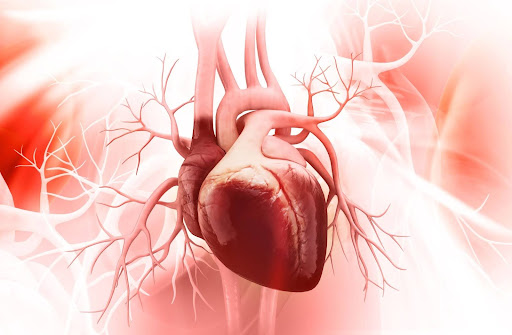
by targetmarket | Mar 29, 2024 | Bloodless Heart Surgery, Heart Surgery
Known as an alternative to open heart surgery, minimally invasive surgery is preferred by many patients. It involves tiny incisions that allow a surgeon to access the heart between the rib bones. This eliminates the need to cut the breastbone. Compared to traditional heart surgery, minimally invasive procedures usually come with less pain and risk as well as a shorter recovery. Here at Minimally Invasive and Bloodless Heart Surgery with Dr. Ciuffo, we’ll dive deeper into the minimally invasive options for high-risk heart surgery. Benefits of Minimally Invasive Heart Surgery There are a variety of advantages of minimally invasive heart surgery. It’s often preferred to high-risk heart surgery because it results in less trauma to the chest and smaller, more discreet scars. It also allows for less blood loss, reduced pain, shorter hospital stays, and a lower chance of infection. How Does Minimally Invasive Heart Surgery Work Every minimally invasive heart surgery is unique. However, most of them involve small incisions in the chest area. You can expect a surgeon to use a special camera device so he can view the heart. During the procedure, you’ll be hooked up to a heart-lung bypass machine so that your blood flow can be maintained throughout the surgery Types Of Minimally Invasive Heart Surgery If minimally invasive heart surgery is an option for you, you’ll work with a surgeon to determine the ideal one. Here’s an overview of some of the most common types of minimally invasive heart procedures: Minimally Invasive Heart Valve Repair: The goal of minimally invasive heart valve repair is to resolve a damaged valve and, in turn, improve... 
by targetmarket | Mar 15, 2024 | Bloodless Heart Surgery
Bloodless heart surgery is performed to prevent blood loss and eliminate the need for blood transfusions and has been shown to provide an easier recovery process. It uses cutting-edge medical techniques that preserve the patient’s own blood. Also known as transfusion-free surgery, it can be a viable alternative for those who need traditional heart surgery but prefer a bloodless approach for personal or religious reasons. At Minimally Invasive and Bloodless Heart Surgery with Dr. Ciuffo, we’re here to take a closer look at what bloodless heart surgery is and what you can expect from the recovery process. How Bloodless Heart Surgery Works Transfusion-free surgery involves advanced techniques that prevent blood loss. In most cases, a surgeon will draw several units of blood, store it in a vessel, and infuse it back into the patient at the end of the procedure. The blood that they draw at the beginning usually gets replaced with a special salt solution, which dilutes the patient’s blood. This ensures that any blood that is lost has fewer red blood cells. A surgeon may also collect bloodshed from bleeding during a case, wash it, and reinfuse it at the end of the procedure. Keep in mind that each bloodless heart surgery is unique and designed for each patient’s particular situation, needs, and preferences. The recovery process also deemed on a case-to-case basis. Reasons to Undergo Bloodless Heart Surgery There are a number of reasons patients choose bloodless heart surgery over traditional heart surgery, which involves blood loss and blood transfusions. It may make sense for those who are concerned about HIV, hepatitis, or other blood-borne diseases... 
by targetmarket | Sep 29, 2023 | Bloodless Heart Surgery, Dr. Giovanni B Ciuffo
Heart surgery, also known as cardiac surgery, is a medical procedure that has saved countless lives by treating various heart conditions. Traditionally, heart surgery involves the use of blood transfusions to replace lost blood during the procedure. However, in recent years, there has been a growing interest in bloodless heart surgery, a technique that eliminates or significantly reduces the need for blood transfusions. Bloodless Heart Surgery While bloodless heart surgery offers numerous advantages, it’s essential to acknowledge patients need to be well-informed about the process and decide whether it is a good option for their individual needs. Here at Minimally Invasive and Bloodless Heart Surgery with Dr. Giovanni B. Ciuffo, we will explore everything you need to know about bloodless heart surgery, from its benefits to the techniques used. Why Bloodless Heart Surgery? Bloodless heart surgery care is an increasingly popular choice for all patients who need surgery in a growing number of medical institutions. It is interesting to note that more and more patients are becoming interested in bloodless heart surgery, regardless of their religious beliefs. It turns out that avoiding the transfusion of blood products has significant clinical benefits. Bloodless heart surgery has gained popularity due to several compelling reasons: Reduced Risk: Blood transfusions come with potential risks, including transfusion reactions, infections, and compatibility issues. Bloodless heart surgery eliminates these risks, making it a safer option for some patients. Keep The Immune System Strong: A downfall of blood transfusions is that they can weaken the immune system and cause it to be less reactive. A weak immune system will not be able to fight infections or cancer... by DrCiuffo | Nov 15, 2022 | Blog, Bloodless Heart Surgery, Dr. Giovanni B Ciuffo, Heart Health, Heart Surgery
10 Tips For Inoperable Heart Disease A diagnosis of inoperable heart disease can be discouraging. A heart condition may be difficult to live with. Minimally invasive bloodless heart surgery may offer options that may not be possible with traditional methods. The treatment options available depend upon several conditions, including your physical health and the scope of experience of the doctors dealing with your case. Dr. Ciuffo is dedicated to finding the solutions that work best for everyone’s individual health journey. By helping you understand inoperable heart disease, you can move forward toward helpful changes. The first step is understanding that your journey will look different from other patients. Get started today to see how we can help you! Inoperable Heart Disease Each patient’s case is decided individually. There are steps you’ll need to take when facing a diagnosis of inoperable heart disease. It’s important not to panic or lose hope. Even if your case isn’t a good candidate for surgical options, many treatments can extend and improve the quality of your life. Ask questions. Request that the medical doctor in charge of your case and your surgeon explain exactly why your case is considered “inoperable.” Be sure to write down the details of their answers. Obtain copies of all of your diagnostic records, including imaging- CAT scans, catheterizations, echocardiograms, EKGs, and other reports. Gather copies of all the reports pertinent to your case, including blood tests and other results. Each of these steps can help you get more information about what is happening. Sometimes answers are more helpful than having to live wondering what will happen next. You should... by DrCiuffo | Aug 10, 2018 | Blog, Bloodless Heart Surgery
Benefits of Bloodless Surgery for the Immune System Bloodless surgery is often considered a choice made by those who cannot receive blood transfusions for religious reasons or due to concerns about blood-borne illnesses, but there are also significant benefits to the immune system. Blood transfusions can have a serious impact on the immune system. Transfusions lower your ability to fight off illness, allergic reactions, and inflammatory responses. Bloodless Surgery Blood transfusions shock the immune system, introducing new elements at a time when the body is already vulnerable. Bloodless surgery reduces the risk of post-op infection, inflammation, and other complications. The recovery rate is much faster with bloodless surgery. This is because the body does not have to deal with the shock of introducing new blood to the system. The cost of bloodless surgery to hospitals is much lower than traditional surgery, and there are far fewer risks involved. Bloodless Heart Surgery Heart surgery is a difficult ordeal for the body to endure. By removing blood transfusions, an element of trauma, from the equation, bloodless heart surgery becomes safer. Consequently, this type of heart surgery is also less challenging for the patient to undergo. Noninvasive heart surgery is a good choice for many candidates. This procedure offers a better recovery rate, fewer infections and allergic reactions, and a lower chance of inflammation. Bloodless Heart Surgery Consultation If you or someone you know are facing heart surgery, Dr. Ciuffo will conduct a full evaluation and to explore the options available to you. Dr. Ciuffo understands the specific needs and concerns of Jehovah’s Witnesses and other people of faith. He will review... by DrCiuffo | Feb 5, 2016 | Blog, Bloodless Heart Surgery
Understanding Bloodless Surgery Have you ever heard of bloodless surgery or bloodless medicine? It is a type of medical procedure/practice that does not rely on the use of blood transfusions during a surgical procedure. While that may sound a little crazy to some, it is completely possible, and is an option for those who choose not to receive blood during a procedure. There are some individuals out there that do not wish to receive any other type of blood during a procedure and bloodless surgery is an alternative to the traditional blood transfusion. Why Bloodless Surgery Has Become an Option There are many individuals who would prefer not to receive a blood transfusions which can be due to safety concerns and/or religious beliefs; doctors and medical teams do understand that and respect any person’s wishes in their healthcare plan. There are many heart surgeon professionals in the field of bloodless medicine and they are capable of increasing one’s quality of life through blood management. Numerous Benefits Many benefits can be reaped through bloodless medicine and many studies have been conducted to show the proof. Generally, those who do not receive blood transfusions do in fact, recover much more quickly from any type of surgical procedure because the body is not working so hard to adjust. Patients will typically experience far less risks/infections that are associated with transfusions and they will also be able to shorten their hospital stay time. The Principles Numerous publications surround the principle of bloodless surgery. There are processes that are endured prior to the surgical procedure such as EPO (erythropoietin)/ iron administration which is utilized...



